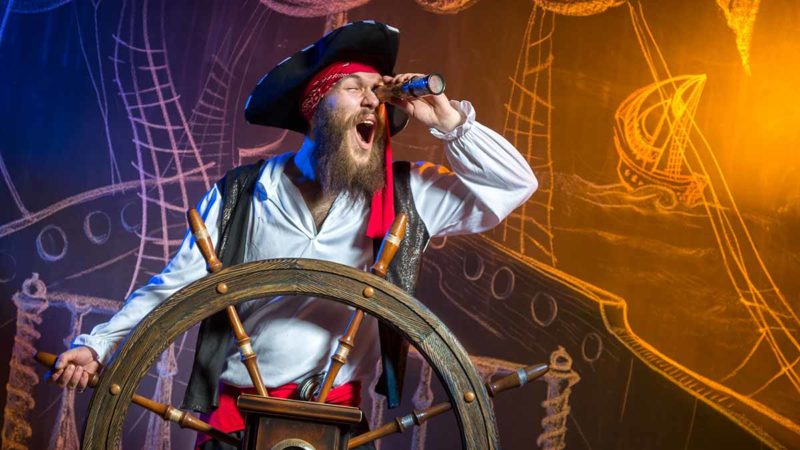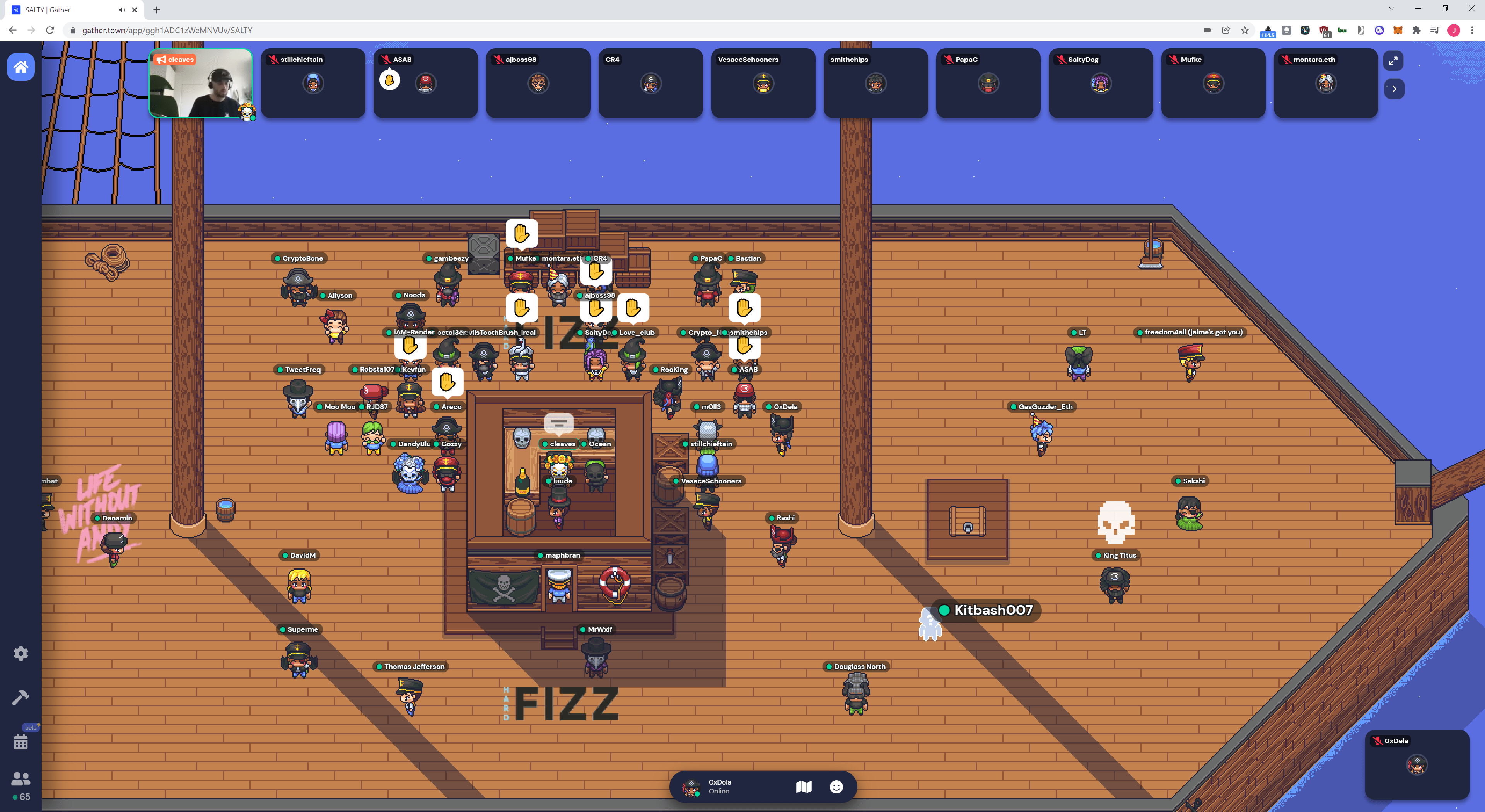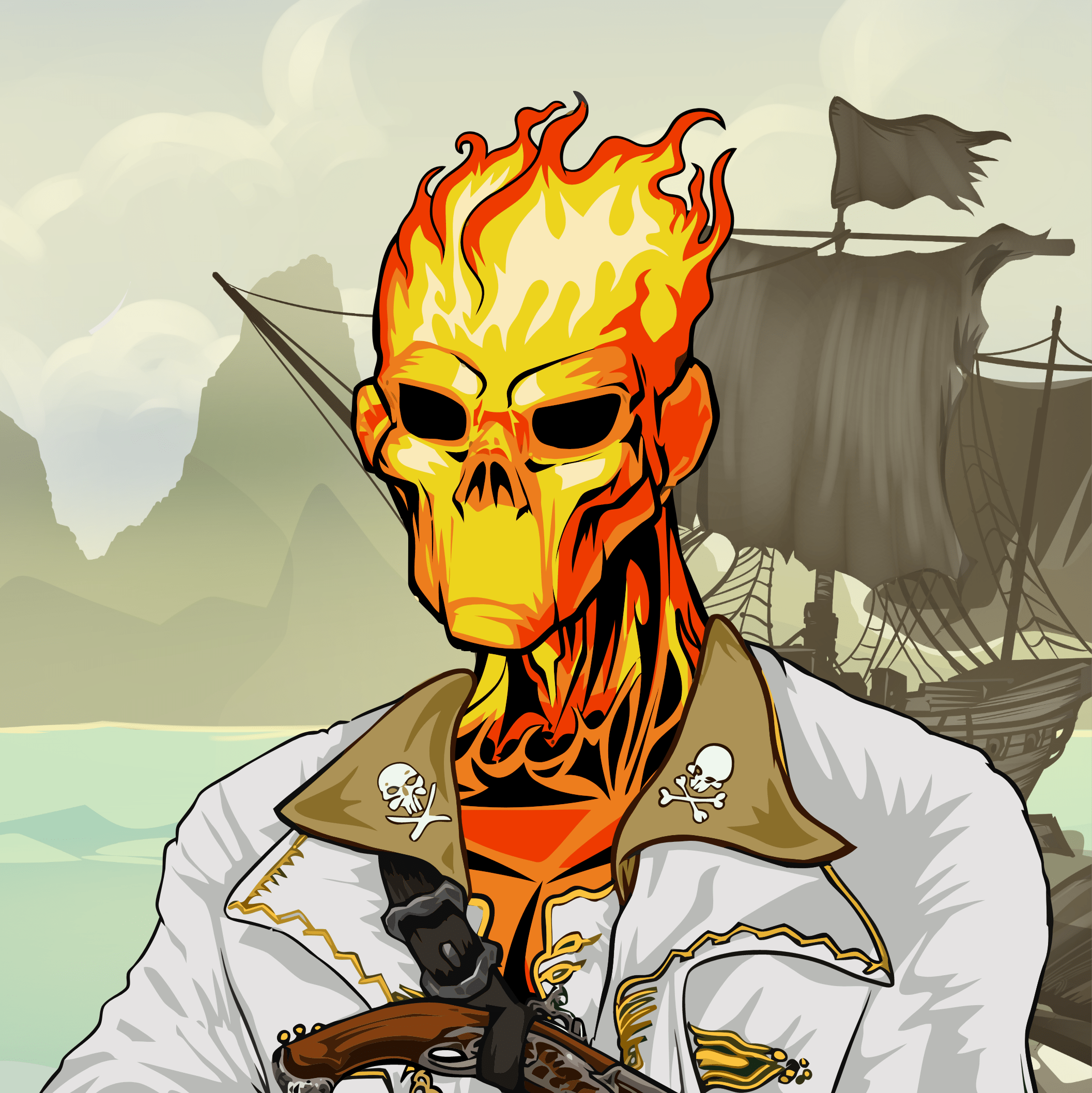Aussie-founded Salty Pirate Crew NFT project sees 320 Ether ($864,000) in trading a week after launch

Pic: Getty
Avast ye mateys! An Australian team has successfully launched a 3,000-item avatar collection of salty pirates into the saturated NFT avatar collection space.
The Salty Pirate Crew sold out a week ago on Tuesday within just two hours. Salty Pirates were available for minting for 0.06 Ether (US$162); they’re now trading on Opensea for at least 2.5 times that (0.15 Ether, or US$405), with a couple having changed hands for over 1 Ether (US$2,700).
The project was founded by Barrett Ovens, the 35-year-old Sydney-based co-founder of Spacenow, an Airbnb-type platform for renting out offices and other commercial spaces.
 “We’ve been really lucky, the space is cluttered with a lot of projects, and people have taken a liking to ours. We really appreciate that,” he told Stockhead on Friday. “What we aim to do with the whole project is pretty exciting.”
“We’ve been really lucky, the space is cluttered with a lot of projects, and people have taken a liking to ours. We really appreciate that,” he told Stockhead on Friday. “What we aim to do with the whole project is pretty exciting.”
The nearly 900 Salty Pirate Crew owners will be able to generate yield on their collectibles by staking them for SALT tokens that they can use within the ecosystem, for such things as buying more NFTs or upgrading existing ones.
“There’s never going to be more than 3,000 OG pirates … (but) you’ll be able to recruit new crew members, which will be in the form of female pirates, and then they’ll be able to create a new set for working towards a space on our ship.”
Yes, the pirates have a ship. It’ll exist in The Sandbox, the metaverse being created by a subsidiary of Animoca Brands. Ovens says the NFT tokenholders will be able to upgrade their bunkrooms into really nice suites with paintings and furniture.
“But you’ll need to have both the OG and the female pirate to be able to get one of those – and then you’ll be able to do all the customisation with the SALT that we’re going to provide through staking.”
Six months of work
The project, Ovens says, is the product of six months of work by a six-member team, three of whom are core contributors.
“It’s a lot of work, actually. We’ve got a quite complicated art set, because we’ve got quite a few different types of pirates,” each of whom were assigned traits during the minting process via an algorithm. But because of the complexity of the collection, some pirate traits conflicted with others, which the team needed to account for.
“There was a lot of testing done to make sure that the final set came out perfect, and we’re pretty happy with the final outcome that we got.”

Unlike a lot of other NFT project founders, Ovens isn’t anonymous.
“A lot of people have lost money, a lot of people aren’t able to give the type of trust that they should to a particular project,” he said. “I have no problems doxxing, because I’m completely 100 per cent making this a massive priority for myself. I have a really grand vision for what Salty is going to be.”
The Salty Pirates team only took two pirates each, compared to other projects where team members each get as many as 50 or 100 items from the collection, Ovens said.
The project also used “zero shill” approach, avoiding what Ovens said were the normal tactics of using paid influencers and “bots” to make the community’s Discord channel appear larger than it really was.
“We did it all organically, and we did all from the grassroots,” he said.
For a long time there were just 100 members in the Discord channel, and then just 300.
“Going from zero to a thousand (community members) was one of the hardest things we ever did,” he said. “But it’s paid off because a lot of the people that stayed with us, they have a long term vision, which is exactly why we executed that plan.”
Just seven per cent of the pirates are listed for sale, Ovens said, which shows that they’ve managed to attract a community of long term holders rather than people interested in flipping their JPGs for a quick profit.
The project says that among those joining the community have included Aussie musicians What So Not, Lucille Croft, Luude & Stu from Set Mo, as well as athletes Chris Lawrence, Latrell Mitchell, Cody Walker and Ben Seymour.
Welcome to the SPC fam Cody Walker! pic.twitter.com/vqvR4KQNiO
— Salty Pirate Crew (@SaltyPirateCrew) January 28, 2022
A Salty Pirate DAO
The project has a partnership with Melbourne-based digital marketing agency No Standing and e-gaming company Ghost Gaming. The collection will be governed a DAO, or decentralised autonomous organisation, a type of collective organisation governed by tokenholders.
The DAO will a portion of both the mint and secondary sales, which will help it buy land in the metaverse, Ovens said.
While there are other metaverses out there such as Decentraland, the Salty Pirate Crew is focused on The Sandbox, as it seems to gaining the most traction at the moment.
“The Sandbox has that real adoption already,” Ovens said. “It’s probably the most exciting metaverse for us right now.”

The Salty Pirates are minted on Ethereum rather than other, cheaper (but less popular) alternatives such as Solana or Avalanche, but Ovens said an efficient minting contract saved users money.
Ahoy Mateys!
We did some calculations and found that the optimized smart contract saved the community just north of $250k in gas fees
If we weren’t minting right alongside you and saw it with our own eyes, it would be hard to believe.
How much did you pay in gas?
— Salty Pirate Crew (@SaltyPirateCrew) January 30, 2022
“I think a lot of people said it was the cheapest they’d ever minted on Ethereum. We had some people mint 10 pirates for $50,” when typically it’d be around $100 to $150, Ovens said.
 Also, the project is deploying a bridge to Polygon for staking, which will help curb high gas fees and help the longevity of the project.
Also, the project is deploying a bridge to Polygon for staking, which will help curb high gas fees and help the longevity of the project.
In total the project collected 170 Ether ($US459,000) during the mint, 60 per cent of which will go to the DAO’s treasury.
There’d been 320 Ethereum (US$864,000) in volume in secondary sales on Opensea by Tuesday afternoon. Sales involve 10 per cent royalties, which are split between the founders and the DAO.
Related Topics
UNLOCK INSIGHTS
Discover the untold stories of emerging ASX stocks.
Daily news and expert analysis, it's free to subscribe.
By proceeding, you confirm you understand that we handle personal information in accordance with our Privacy Policy.








